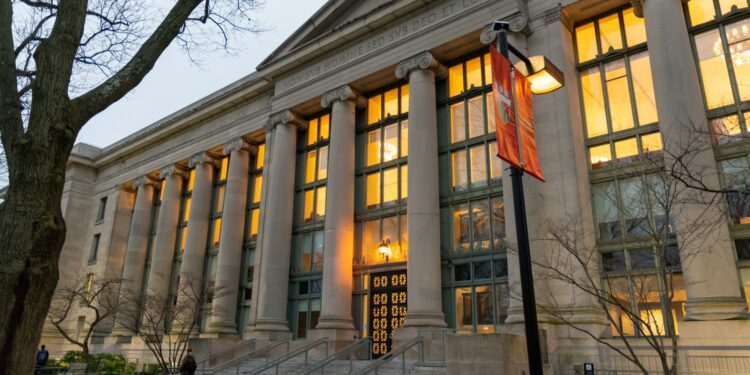As of 3 May 2025, the relationship between the Trump administration and American universities has grown increasingly fraught, shaped by sweeping policy shifts, funding cuts, and cultural interventions that have sparked national debate and institutional anxiety.
Crackdown on DEI initiatives
Earlier this year, President Trump signed executive orders aimed at dismantling federal Diversity, Equity, and Inclusion (DEI) programmes. All federally funded DEI offices and training schemes were ordered to shut down, and government agencies were instructed to remove DEI-related content from public platforms. Universities with federal contracts are now under pressure to certify their compliance with civil rights laws, forcing many to reassess or dismantle long-standing diversity frameworks.
Simultaneously, the Department of Justice launched civil investigations into universities and corporations that have publicly committed to diversity goals. This has led to a withdrawal of sponsorships, hiring freezes, and hesitancy among corporate partners, particularly in research and recruitment collaborations.
Financial pressure and revoked status
The administration has taken aggressive financial steps, most notably by revoking Harvard University’s tax-exempt status after it challenged a freeze on $2.2 billion in federal funds. Legal experts have criticised the move as an abuse of executive power.
In broader terms, the administration’s proposed 2026 budget includes £130 billion in cuts to non-defence domestic programmes. Public broadcasting and university-linked climate initiatives are among the areas facing significant reductions.
Disruption to research and academic programmes
Federal funding cuts have begun to take a tangible toll on research capacity and academic planning. Some universities have closed entire labs tied to international aid projects. The University of Pennsylvania, for instance, has reduced its medical graduate intake for autumn 2025 by over a third. Across the country, graduate students report admissions offers being rescinded, and many institutions have halted hiring or delayed research due to funding uncertainty.
Antisemitism investigations and campus compliance
In January, President Trump signed Executive Order 14188 to combat antisemitism, instructing agencies to monitor and report antisemitic incidents, particularly on campuses. The Department of Education has since launched investigations into several institutions, including Columbia University, over allegations that they failed to protect Jewish students.
In a high-profile move, the administration withdrew £320 million in federal grants and contracts from Columbia University, citing non-compliance. Critics say this represents a politically motivated use of funding to coerce university policies.
Student loans and repayment reforms
From 5 May 2025, federal student loan collections will resume for borrowers in default, ending a pandemic-era moratorium. The administration has proposed further reforms, including extending repayment terms to 30 years, removing interest subsidies, eliminating £0 monthly payments for low-income earners, and tightening eligibility for Public Service Loan Forgiveness. These changes have prompted outcry from student advocacy groups, who warn of increased long-term financial strain on borrowers.
In summary, the Trump administration’s latest actions signal a broad restructuring of the federal government’s relationship with higher education—both ideologically and financially. Universities now face a volatile landscape marked by political pressure, regulatory uncertainty, and diminishing federal support.
newshub politics



Recent Comments